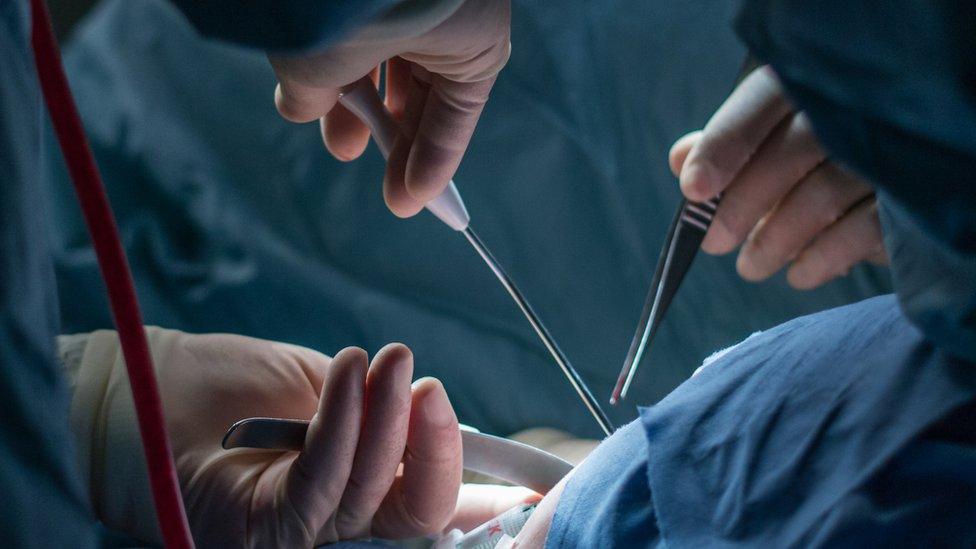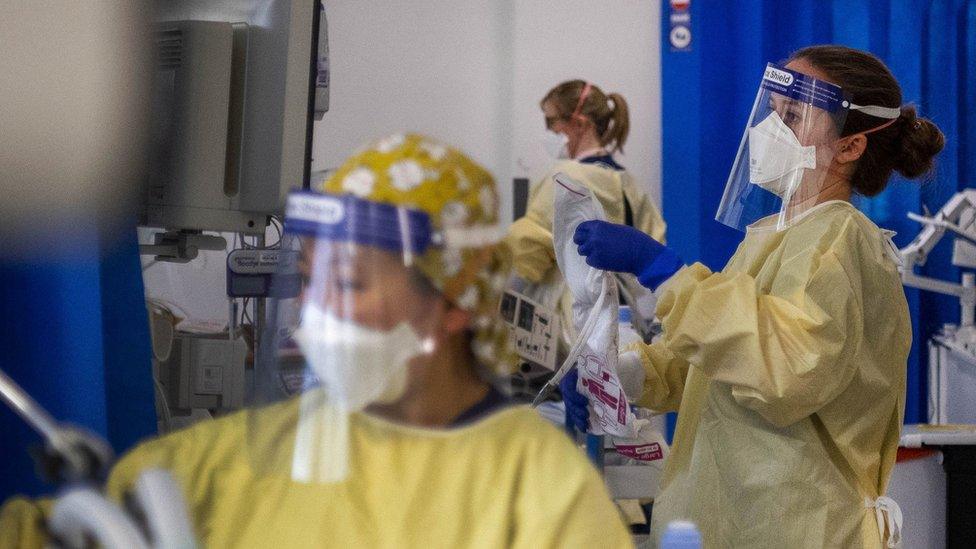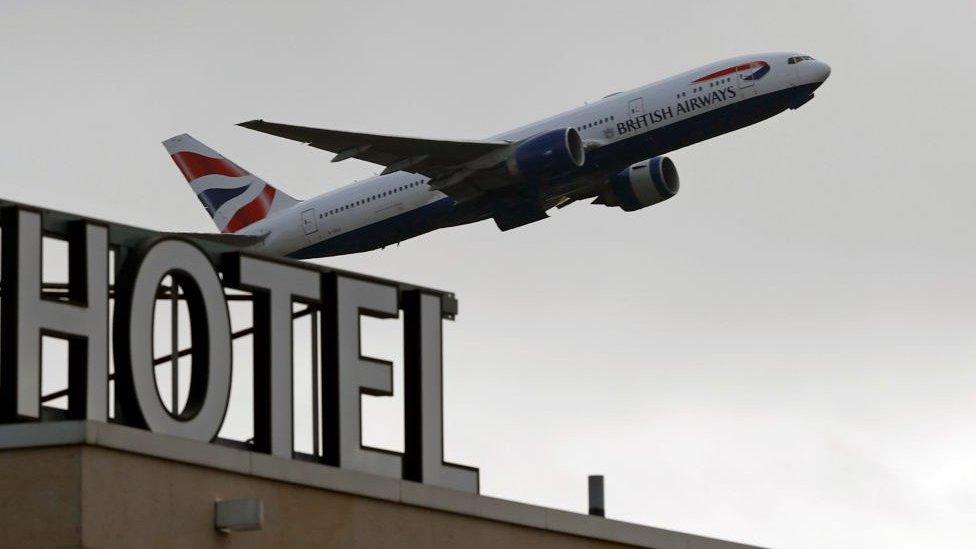Covid-19: Pandemic pushes up hospital waits, and arthritis drug a 'life-saver'
- Published
Here are five things you need to know about the coronavirus pandemic this Thursday evening. We'll have another update for you tomorrow morning.
1. Pandemic pushes hospital waits to record high
The number of people waiting more than 12 months to start hospital treatment in England was 224,205 in December, NHS figures show. It's the highest for any calendar month since April 2008, and compares with 1,467 in December 2019. It comes as growing numbers of operations were postponed during December when Covid cases rose rapidly. Professor Stephen Powis, national medical director for NHS England, said the health service "remains under significant pressure" and staff had worked extremely hard to provide essential services during the pandemic.


2. Arthritis drug a 'life-saver' for Covid patients
A drug normally used to treat arthritis can be a life-saver for some of the sickest hospital patients with Covid, according to new research. For every 25 patients treated with tocilizumab, along with a cheap steroid already routinely given, an additional life would be saved, experts have said. Some hospitals are now doing this. As well as improving survival and recovery time, it can avoid patients needing to be moved to intensive care, said NHS doctors. A clinical trial with more than 4,000 volunteers was carried out and researchers say the results are a "tremendous step forwards".


3. Vaccinations in Scotland 'may need to slow down'
More than one million people have had their first dose of the Covid jab in Scotland so far. But Nicola Sturgeon has warned that the country's vaccination programme is likely to slow down later this month because of supply problems. The first minister said a "temporary reduction" in Pfizer's manufacturing capacity meant the country had received slightly lower stocks of the vaccine than expected. This means the number of vaccination appointments is likely to be reduced. But Ms Sturgeon insisted Scotland is still on track to hit its targets.
Covid: Vaccine supplies could see roll-out 'slowdown'

4. Hotel quarantine site taken down after launch
It wasn't a great start for travellers wanting to book their rooms in hotels being used as part of the UK's quarantine scheme. The new system for securing a place was taken offline minutes after it launched. The portal, set up as part of efforts to control new Covid variants entering the UK, was removed temporarily for maintenance "to correct a minor technical error". It said rooms were available "and travellers will be able to book through the site imminently". From Monday, British and Irish citizens, and UK residents arriving in England from 33 "red-list" countries must isolate for 10 days in hotels, at a cost of £1,750 for one adult.


5. Mum and daughter both take up nursing due to Covid
A mother and daughter have joined nursing courses at the same university after they both decided they wanted to help on the front line as a result of the coronavirus pandemic. Tracy Alexander, 49, chose to specialise in child nursing, while her daughter Sarah, 22, has pursued adult nursing at Liverpool John Moores University. They are both in their first year and began their studies in September. Sarah said it was "nice to have someone who understands" when she comes home after a day of lessons.
Liverpool mum and daughter become nursing students together

And don't forget...
You can find more information, advice and guides on our coronavirus page, including our detailed look into how the pandemic has impacted the nation's mental health.


What questions do you have about coronavirus?
In some cases, your question will be published, displaying your name, age and location as you provide it, unless you state otherwise. Your contact details will never be published. Please ensure you have read our terms & conditions and privacy policy.
Use this form to ask your question:
If you are reading this page and can't see the form you will need to visit the mobile version of the BBC website to submit your question or send them via email to YourQuestions@bbc.co.uk, external. Please include your name, age and location with any question you send in.

AN EVENING WITH RYAN GOSLING?: Stream the award-winning crime-thriller film 'The Place Beyond the Pines'
A PERFECT PLANET: All episodes of Sir David Attenborough's latest incredible series are available to stream now
